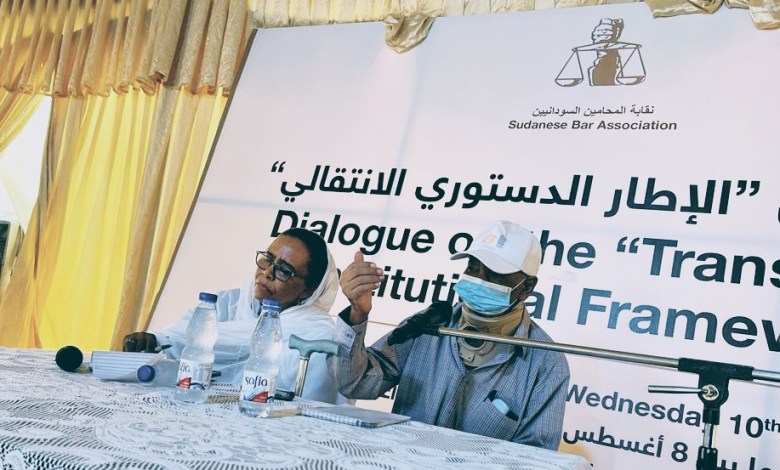Khartoum, August 11(Darfur24) After three days of deliberations, the dialogue workshop on the transitional constitutional framework -at the Sudanese Bar Association headquarters in Khartoum came out with recommendations that included 8 axes, most notably: the transitional constitution, the tasks and duration of the transitional period, the institutions of the transitional authority and how to form them, the file of peace, justice and security services, civil-military relations and reforming security and military sectors.
The recommendations of the workshop, which was held from August 8-10, focused on the need to distance the military institution, its exit from political work, participation in power and transitional government, the establishment of a full democratic civilian authority and government, and an emphasis on constitutional development in the establishment of a new constitutional declaration that derives its reference from the Sudanese democratic constitutions .
The participants in the workshop explained that the most important tasks of the transition are to achieve a just and comprehensive peace, transitional justice, reform of the justice agencies, security and military reform, dismantling the structure of the June 30, 1989 regime, recovering public funds, and reviewing coup decisions..
The participants also recommended that the levels of government during the transitional period be “federal, regional or state, and local” with exclusive and shared competencies and powers in accordance with the law, and that the transitional governing bodies be from a “legislative council, a sovereign council, a cabinet,” in addition to the formation of independent .
On the axis of the peace file, the participating parties emphasized the completion of the peace process with the armed movements that did not sign, the formation of the Peace Commission as a mechanism for peacemaking and peacebuilding, and convening a national peace conference to lay the foundations for sustainable peace, address the roots of war, collect weapons, and provide for security arrangements to ensure reintegration and demobilization. The workshop, which was held with the participation of the Federalist Party, the People’s Congress Party, the Republican Party, the National Umma Party, the resistance committees, civil society organizations, university professors, representatives of the Ministry of Justice, professional groups, families of martyrs recommended the need to review the economic activity of the military institution.
The participants also emphasized that the constitutional dialogue is the ideal mechanism for consolidating true democracy and enhancing participation and transparency in the making of the transitional constitution.
It is worth noting that the workshop witnessed the presence of the Special Representative of the Secretary-General of the United Nations, Volker Peretz, the African Union, the IGAD, and the European Union, as well as the ambassadors of Saudi Arabia and Britain and the charge d’affaires of the US Embassy.

